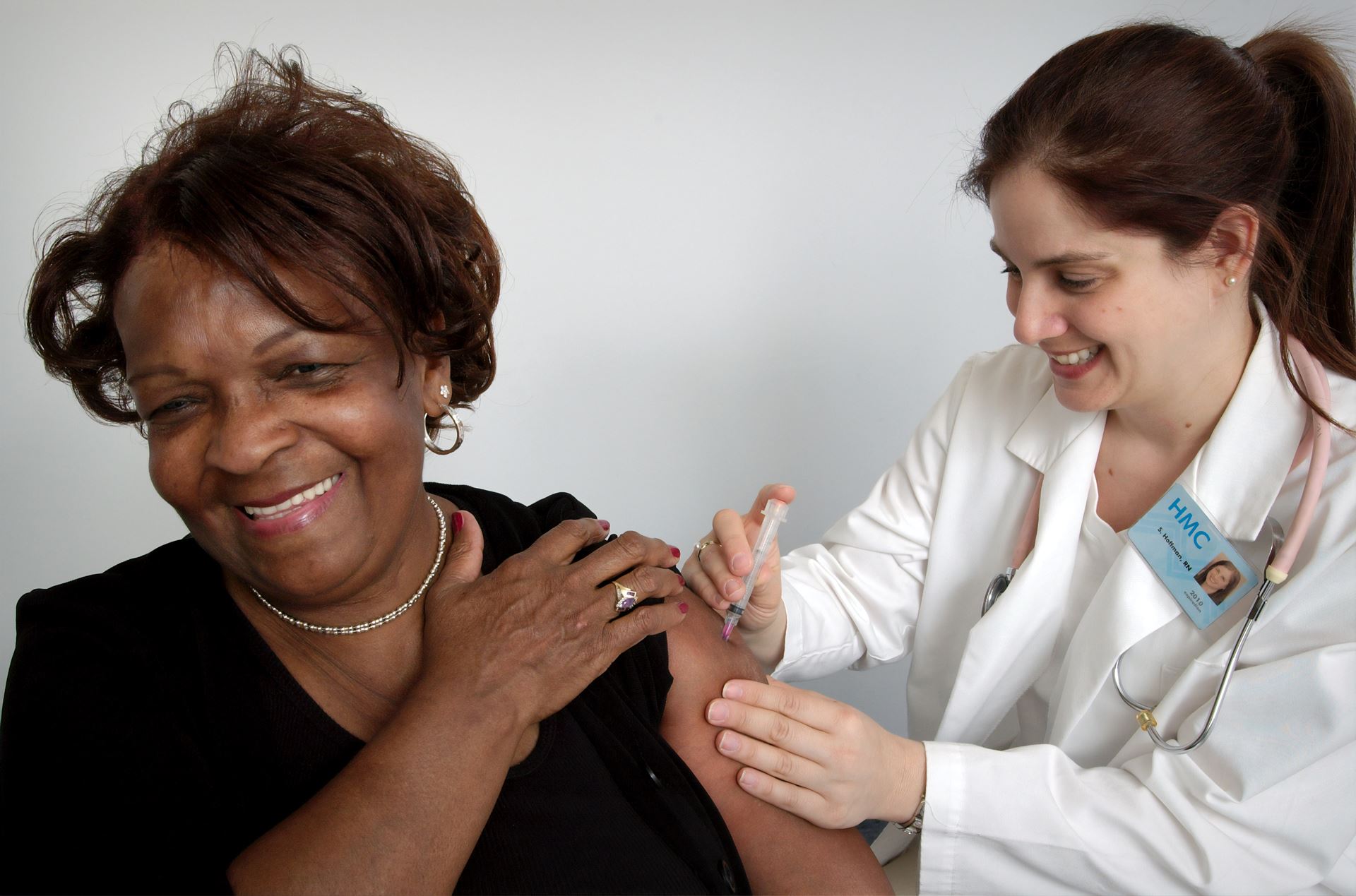Immunisations
Does Age Affect The Risk Of Flu?
Yes. If you are aged 65 years or over or you are at higher risk
Who is at risk?
- If you are aged 65 years or over or if you are on regular inhaled steroids
- If you have a chronic respiratory disease (including asthma)
- If you have chronic heart disease
- If you have chronic renal disease
- If you are diabetic
- If you have a weak immune system
- If you live in a long-stay residential or nursing home
- If you have a chronic liver disease
- If you are a carer

Do I Need To Be Protected Against Pneumococcal Infection?
Everybody aged 65 and over should now be immunised to help protect them against pneumococcal infection which can cause diseases such as pneumonia, septicaemia (blood poisoning) and meningitis. Please phone the surgery during September to make an appointment if the above applies to you.
COVID-19
If you think you might have coronavirus or you’ve been in close contact with someone who has it visit NHS 111 online coronavirus service for advice.
Please do not attend any booked appointments at the practice if you have or think you have COVID.
Bancroft and the PCN (Primary car network) are not currently delivering covid boosters, please check out the following site for your nearest vaccination site https://www.nhs.uk/conditions/coronavirus-covid-19/coronavirus-vaccination/find-a-walk-in-coronavirus-covid-19-vaccination-site/.
Childhood Vaccination Programme
Some infectious diseases can kill children or cause lasting damage to their health. Your child's immune system needs help to fight those diseases. Immunisation gives protection against some infectious diseases. Vaccines stimulate the body to produce antibodies that fight infection. Immunisation is also known as 'vaccination', 'jab' or 'injection'.
Immunisation prepares the body to fight serious infections that might happen in the future. Young babies are very vulnerable to infections, so they need to be protected as early as possible.
Your child needs several different vaccines to be fully protected, so it’s important to complete their childhood immunisation programme.
for more information follow the following link https://www.nhs.uk/conditions/vaccinations/nhs-vaccinations-and-when-to-have-them/
If your child is due any of the vaccines and you have not been called please call the surgery on 01462 654040. Please do not call at busy times eg 8am to 10am.
Shingles
Also known as HERPES ZOSTER, IS A DISEASE THAT PRESENTS AS A PAINFUL RASH.
Shingles is caused by the reactivation of the varicella zoster virus, the same virus that causes chickenpox. After a person gets chickenpox, the virus stays dormant inside the body for life, usually not causing any problems or symptoms. Our immune system naturally weakens over time as we age which may allow the usually inactive virus to reactivate, causing shingles.
- The first signs of shingles can be a tingling or painful feeling in an area of skin, a headache or feeling generally unwell.
- Typically, a blistering rash may appear a few days later, on one side of the body only.
- The shingles rash most commonly appears on the chest or abdomen, but can appear anywhere on the body including the face.
- It can take up to 4 weeks for the rash to heal. Usually, symptoms improve within weeks, however some patients suffer prolonged pain or other complications.
Prevention:
Shingles can be prevented through vaccination. Speak with our nurse or doctor at your next appointment to discuss prevention options. There is a national immunisation programme for shingles available for people aged 70-79. Vaccinations can be booked with our practice nurses.
for more information on Shingles go to the NHS website on condiditons https://www.nhs.uk/conditions/shingles/.
Page created: 01 March 2023